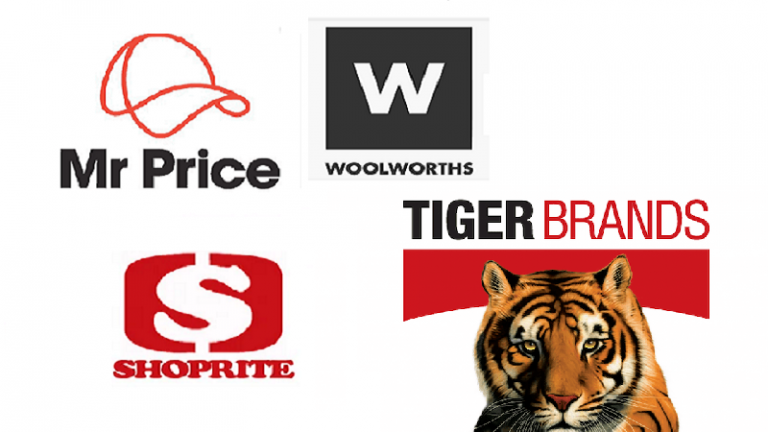
Mr. Price left last year. Woolworths had departed in 2013, and Shoprite left a few months ago. Now Tiger Brands joins the bandwagon as South Africa’s retail/FMCG struggles in Africa’s largest economy: “South African company Tiger Brands, owner of brands like All Gold, Black Cat and Koo, agreed to sell its 49% minority shareholding in UAC Foods to parent UAC of Nigeria.” But this one is not on Nigeria; it is on the southern African companies. Yes, if you look carefully, Nigerian retail/FMCG has a promise, and the locals are outcompeting the foreign players here.
That promise requires a new business model. And if you check at what TradeDepot, Alerzo, Mint and some other B2B ecommerce startups are doing, you will notice one thing: they are improving open market operations, and provided that continues to happen, organized and formalized retail will struggle in a nation with decreasing purchasing power especially for imported products.
The purchase is expected to be completed in September, UAC of Nigeria said in a filing published on the website of the Nigerian Exchange Group. UAC of Nigeria currently owns 51% of UAC Food’s shares.
Tiger Brands acquired a minority state in UAC Foods in 2011, following a joint venture agreement with the Nigerian firm to manufacture and distribute some sausage, ice cream and water brands. It is exiting Nigeria about two months after another South African firm, Shoprite Holdings, sold its operations in the West African country to local investors.
Also, Tiger Brands in 2015 sold its shareholding in Dangote Flour to Nigerian parent Dangote Industries, three years after buying it.
These factors continue to shape the Nigerian retail/FMCG market, making things hard for these organized foreign retailers.
Register for Tekedia Mini-MBA edition 19 (Feb 9 – May 2, 2026): big discounts for early bird.
Tekedia AI in Business Masterclass opens registrations.
Join Tekedia Capital Syndicate and co-invest in great global startups.
Register for Tekedia AI Lab: From Technical Design to Deployment (next edition begins Jan 24 2026).
Product-Market Fit: To a large extent, formal retail in Nigeria remains highly underdeveloped due to infrastructures. While it makes sense to go to a farmer’s market in Cape Town and buy a cow, process it and dump in your deep freezer for months, large-scale shopping when there is no electricity makes no sense in Nigeria.
Economy: South Africa at close to 60 million people budgets an excess of $65 billion than Nigeria which is more than 3.5x its population. At a population of 210 million, Nigeria spends a paltry $35 billion when South Africa hits close to $100 billion. So, to a large extent, the middle class in Nigeria is very small and the purchasing power for organized retail may be limited.
Unlike South Africa, Nigeria falls within this segment which reshapes available opportunities for organized retail: “the most significant opportunity for African B2C startups lies with consumers who earn between $4 — $8 per day”. That spectrum is not a very sweet domain for organized retail. You need at least $15 per day to make it fascinating for the likes of Shoprite. So, there is a clear product-market fit dislocation and that has made organized retail challenging in Nigeria.

Also, checking the economy, South Africa collects excess of $85 billion from taxes. Nigeria’s revenue comes down to about $10 billion. This shows the scale of the disparity of the economies.
Competition: From daily to weekly open markets to shop on the street, to traffic sellers, Nigeria is a market. To win as an organized retailer, you have to beat those alternatives. But beating them when they do not tax becomes challenging. If margins remain low, issues crop up. Nonetheless, a new South African firm is in town: Pick n Pay.
You can also add currency in the list. Foreign brands may not like packing Naira when they have to struggle to exchange them for US dollars or Rand for largely nothing. So, the currency deterioration in Nigeria is a very big challenge.
---
Connect via my
LinkedIn |
Facebook |
X |
TikTok |
Instagram |
YouTube




Unlike B2C, in B2B you do not get to worry about a lot of unnecessary thing. Although, there would be a lot of paper work, smaller volume of transaction compared to the other, nevertheless, it serious business.
The big retailers don’t operate in a separate economy, it’s the same battered and struggling economy they operate in. Not everything qualifies as a business in a certain environment, especially when you are coming from outside. Buying and selling is too chaotic here for organised big retailers, they will always struggle.
We are asking people to spend more than they are making, it’s an illusion, and cannot work.
Has Nigerian GDP ever hit $600 billion? But the population has been growing, inflation has been growing, wages aren’t keeping pace, millions of people aren’t joining high paying workforce; so what sort of magic or miracle are we banking on?
Retailers benefit from a functioning and growing economy, they are never the catalysts or orchestrators, rather beneficiaries, but we seem to be getting it backwards here.
You make money before you go shopping, you do not shop first, then make money later; fix the moneymaking system and all these analyses and weightless solutions will end.